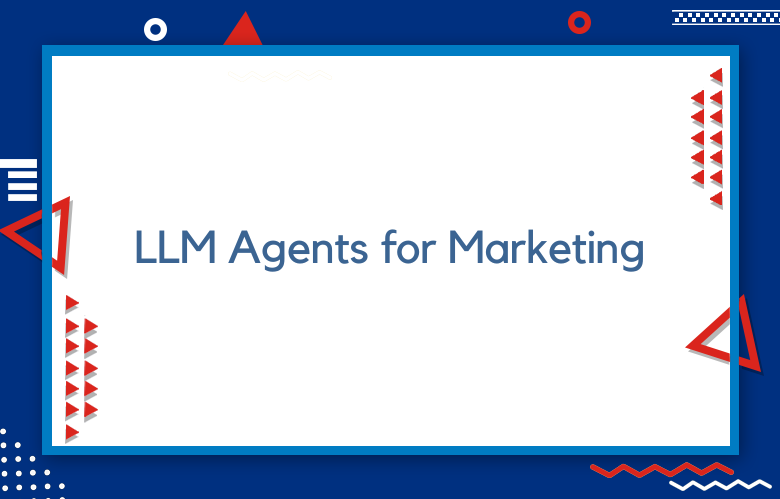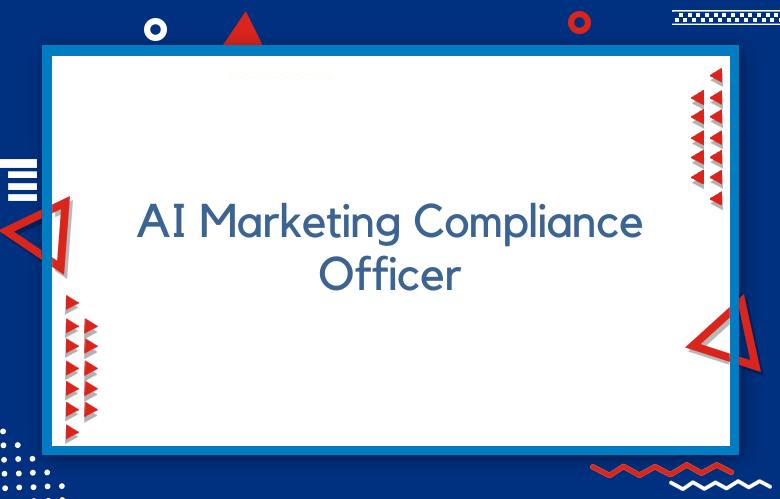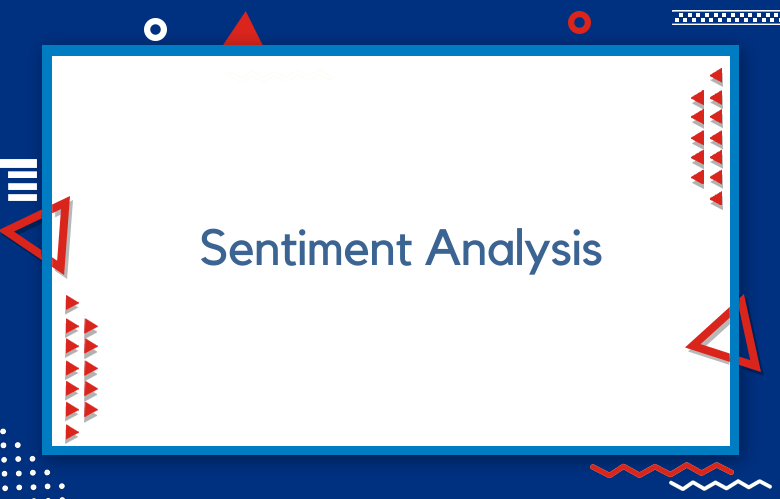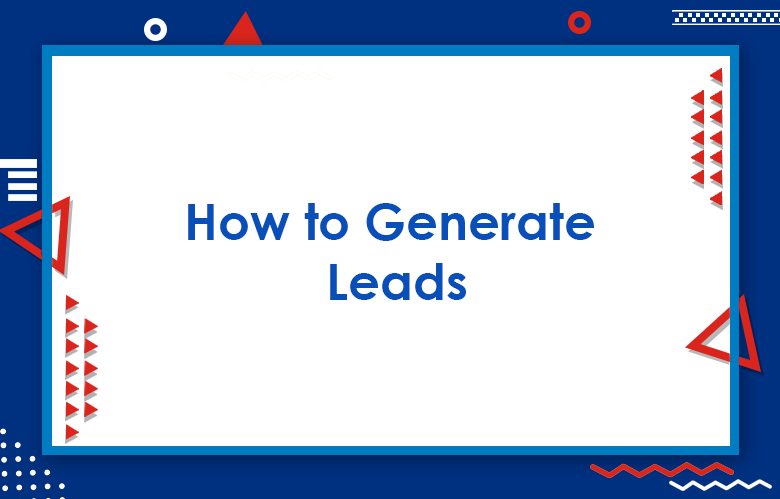Integrate LLM Agents for Marketing: Boost ROI

- Key Takeaways
- Understanding LLM Agents
- Identifying Marketing Applications
- Evaluating ROI for LLM Integration
- Selecting the Right Development Team
- Choosing the Best LLM Model
- Building and Securing LLM Agents
- Testing and Deployment Strategies
- Optimizing Performance and Efficiency
- Closing Thoughts
- Frequently Asked Questions
- What are LLM agents?
- How can LLM agents benefit from marketing?
- What should I consider when evaluating ROI for LLM integration?
- How do I choose the right development team for LLM projects?
- Which LLM model is best for my marketing needs?
- What security measures should I take when building LLM agents?
- How can I optimize the performance of my LLM agents?
Did you know that 80% of marketers believe AI can enhance their strategies? Integrating LLM agents for marketing is a game-changer. These intelligent tools can analyze data, predict trends, and personalize customer experiences like never before. Businesses that adopt these agents gain a competitive edge. They save time and boost efficiency while crafting targeted campaigns.
Imagine automating your outreach and engaging customers in real-time. LLM agents can help create compelling content and optimize ads, brightening your marketing efforts. This technology not only streamlines processes but also drives better results.
Key Takeaways
- Understand LLM Agents: Learn what they are and how they can enhance your marketing efforts by automating tasks and providing insights.
- Identify Applications: To improve your strategies, explore specific marketing applications for LLM agents, such as customer engagement, content creation, and data analysis.
- Evaluate ROI: Analyze potential cost savings and increased efficiency in your marketing campaigns to assess the return on investment for integrating LLM agents.
- Select the Right Team: To ensure successful implementation and support, choose a skilled development team with experience with LLM technology.
- Choose the Best Model: Research different LLM models to find the one that aligns with your marketing goals and offers the best performance for your needs.
- Optimize and Secure: Focus on optimizing the performance of your LLM agents while ensuring data security.
Understanding LLM Agents
Definition
LLM agents are advanced tools that use large language models. They require human intelligence to answer questions, generate text, and engage in conversations.
These agents analyze input data and produce responses that mimic human-like interactions. Their ability to understand context and nuances makes them practical for various applications.
Adaptability
Adaptability is a crucial feature of LLM agents. They learn from diverse data sources over time.
For example, an LLM agent can adjust its responses based on user feedback. If users prefer shorter answers, the agent can modify its style accordingly. This flexibility enhances the tool’s overall effectiveness.
User Experience
LLM agents significantly enhance user experiences across industries. They respond quickly to inquiries, making interactions smoother and more efficient.
In customer service, for instance, these agents can handle multiple queries simultaneously. This reduces customer wait times and improves satisfaction levels. Businesses benefit from increased productivity as LLM agents take on repetitive tasks.
Productivity Boost
Using LLM agents can lead to substantial productivity gains. They automate routine tasks, allowing human workers to focus on more complex issues.
This shift not only saves time but also boosts creativity within teams. Employees can dedicate their efforts to innovation instead of mundane tasks. As a result, organizations see improved outcomes and higher employee morale.
Applications Across Industries
LLM agents find applications in many sectors, including marketing, education, and healthcare. In marketing, they analyze consumer behavior and generate personalized content.
Educational platforms use them to create interactive learning experiences. In healthcare, they assist with patient inquiries and streamline administrative tasks.
LLM agents’ capabilities benefit each industry uniquely. Their versatility makes them valuable assets in today’s digital landscape.
Identifying Marketing Applications
Customer Engagement
LLM agents play a vital role in customer engagement. They can interact with customers in real-time through chatbots on websites or social media platforms. These agents respond to inquiries quickly, providing immediate assistance. For example, a customer might ask about product availability. The LLM agent can instantly provide the needed information. This quick response enhances customer satisfaction.
Moreover, LLM agents can personalize interactions. They analyze past customer behavior and preferences and suggest products that fit individual needs. This tailored approach boosts engagement levels and encourages repeat purchases.
Lead Generation
Lead generation is another area where LLM agents shine. They assist businesses in identifying potential customers through targeted outreach. By analyzing data, LLM agents can identify trends and patterns in consumer behavior, helping companies focus their marketing efforts on the right audience.
LLM agents can automate outreach processes. They can send personalized emails or messages to potential leads based on their interests. This automation saves time and increases efficiency. As a result, businesses see higher conversion rates from their marketing campaigns.
Content Creation
LLM agents significantly streamline content creation processes. They generate ideas for social media posts and email campaigns quickly. Businesses can save time by using these agents to draft initial content. For instance, an LLM agent can create several variations of a marketing email in minutes.
These agents also ensure that content aligns with brand voice and messaging. They analyze successful past campaigns to replicate effective strategies. This capability allows companies to maintain consistency across their marketing efforts.
Data Analysis
Enhancing data analysis is another crucial function of LLM agents. They process large amounts of data quickly, finding insights that human analysts might miss. For example, LLM agents can evaluate customer feedback and reviews to identify common themes.
This analysis helps businesses better understand market trends. Based on these insights, companies can adjust their strategies to stay competitive. LLM agents can automate reporting processes, freeing up valuable time for marketers.
Market Research
LLM agents also make market research more efficient. They can gather data from various sources and analyze it effectively, including competitor analysis and consumer sentiment tracking.
Through this research, businesses gain valuable insights into their industry landscape. This information helps them make informed decisions about product launches or marketing strategies.
Evaluating ROI for LLM Integration
Cost Savings
LLM agents can significantly reduce marketing costs. For example, a company might spend $50,000 annually on customer service representatives. By integrating LLM agents, they could lower this cost by 30%, a savings of $15,000 each year.
Moreover, LLM agents can work 24/7 without breaks. This constant availability ensures that customers receive timely responses. Delays in customer service often lead to lost sales. Automating these interactions can help retain customers and increase satisfaction.
Revenue Increases
Projected revenue increases from better customer interactions are noteworthy. LLM agents enhance communication with customers. They provide personalized recommendations based on user data. This tailored approach can boost sales significantly.
For instance, a retail company using LLM agents reported a 20% increase in sales after implementation. Customers appreciated the quick responses and relevant suggestions.
Long-Term Benefits
Analyzing long-term benefits is crucial when considering LLM integration. Initial investment costs may seem high, but the returns can be substantial. Businesses need to evaluate both short-term gains and long-term growth.
Integrating LLM agents involves upfront costs, such as software purchase and training staff. However, these expenses often pay off within a few years. Companies may find that operational disruptions during integration are minimal. The transition period usually lasts only a few weeks.
After the initial phase, businesses often experience improved efficiency. Marketing teams can focus on strategic planning rather than mundane tasks. This shift allows for innovation and creativity in campaigns.
Customer insights gathered by LLM agents can inform future marketing strategies. Analyzing data helps companies better understand consumer behavior, leading to more effective marketing efforts.
Selecting the Right Development Team
Required Skills
Developing effective LLM agents for marketing requires a mix of skills. Technical expertise is essential. Developers should understand machine learning and natural language processing. They must know how to train models and optimize algorithms.
Marketing knowledge is also essential. Teams should grasp marketing strategies and consumer behavior. This helps tailor LLM agents to meet specific needs. A blend of these skills ensures that the agents can effectively engage customers.
In-House vs. Outsourcing
Choosing between in-house development and outsourcing has its pros and cons.
In-house development allows for direct control over the project. Teams can quickly adapt to changes. They also have better access to company-specific data, ensuring a more customized solution.
However, it requires significant investment in talent and resources. Hiring skilled developers can be costly, and training existing staff may take time.
Outsourcing offers access to specialized firms with proven experience. These companies often have established processes for developing LLM agents. This can speed up the integration process.
Yet outsourcing may lead to communication challenges. The external team might not fully understand the company’s culture or goals, resulting in a less tailored product.
Collaboration Importance
Collaboration between marketing teams and technical developers is crucial for successful integration. Marketing teams understand customer needs and market trends. They provide insights that guide the development process.
Technical developers offer expertise in building effective LLM agents. Both teams must work together to ensure the technology aligns with marketing strategies.
Regular meetings help maintain open communication. Sharing feedback throughout the development process leads to better results, and this teamwork fosters innovation and creativity.
Summary of Considerations
- Identify required skills: technical expertise and marketing knowledge.
- Weigh in-house development against outsourcing options.
- Emphasize collaboration between marketing and technical teams for success.
Selecting the right development team involves careful consideration of these factors. When developed correctly, effective LLM agents can significantly improve marketing efforts.
Choosing the Best LLM Model
Available Models
Many LLM models exist today, each with different strengths and weaknesses. For instance, OpenAI’s GPT-3 excels at generating human-like text. It can create content for blogs, social media, and emails. Google’s BERT focuses on understanding context in language, which makes it great for search engine optimization.
e models are better suited for specific tasks. For example, if a business needs customer support chatbots, they might prefer models designed for conversational AI. These models often include features like sentiment analysis and response generation.
Scalability Factors
Scalability is critical when choosing an LLM model. Businesses grow, and their needs change over time. A good model should handle increased workloads without losing performance. Some models offer cloud-based solutions that allow easy scaling, while others may require significant infrastructure changes to accommodate growth.
Customization options also matter. Different businesses have unique requirements. Some LLMs allow users to fine-tune their models based on specific datasets. Companies can tailor responses to fit their brand voice or industry jargon.
Support Services
Support services play a crucial role in selecting a model. Some providers offer extensive documentation and tutorials.
Choosing a model with solid community support can also be beneficial. A vibrant user community shares tips and best practices, helping businesses maximize their use of the model.
Licensing and Costs
Understanding licensing agreements is vital before committing to an LLM model. Some models charge per usage, while others have flat fees or subscription plans. Companies need to assess their budget against these costs.
Additional features or services may result in hidden fees. Therefore, reviewing the terms carefully ensures that there are no surprise expenses later on.
Businesses should consider their long-term goals when evaluating costs. Investing in a more expensive but effective model could lead to greater returns.
Summary of Key Considerations
- Identify specific marketing applications.
- Evaluate scalability and customization options.
- Assess available support services.
- Review licensing agreements and total costs.
Building and Securing LLM Agents
Define Requirements
Developing LLM agents starts with defining requirements. This step involves understanding what the agent needs to do. Clear goals help in creating effective agents. Identify the target audience and their needs. Gather input from stakeholders to ensure alignment.
Setting timelines is also crucial. Establish a timeline that outlines each phase of development. This helps keep the project on track. Regular check-ins can ensure progress aligns with the planned schedule.
Implement Security Measures
Security is vital for LLM agents. They handle sensitive data, making them targets for attacks. Update software regularly to fix security flaws. Conduct vulnerability assessments to identify potential weaknesses—train team members on security best practices to reduce human errors.
Data privacy is another critical aspect. This protects user information and builds trust with customers.
Engage Domain Experts
Engaging domain experts is essential for enhancing reliability. Their expertise can provide valuable insights during development. Involve them early in the process to gather feedback on requirements and design.
Experts can also assist in testing the LLM agents. Continuous feedback loops improve the agent’s performance and effectiveness.
Conduct user testing sessions where real users interact with the agent. Collect feedback on usability and functionality. This information helps refine the agent before its final release.
Monitor Performance
After deployment, monitor LLM agents’ performance regularly. Set up analytics to track how well they meet user needs. Analyze data to understand usage patterns and areas for improvement.
Adjustments may be necessary based on performance metrics. This ongoing evaluation ensures that the agents remain effective over time.
Document Processes
Documenting processes throughout development is beneficial. This includes recording requirements, testing results, and changes made during development. Good documentation aids future updates and troubleshooting efforts.
It provides an apparent reference for new team members as well.
Testing and Deployment Strategies
Comprehensive Framework
A comprehensive testing framework is essential for evaluating LLM agents. This framework should assess performance, accuracy, and user experience before the agents go live. Start by defining clear metrics for success. These metrics could include response time, relevance of answers, and user satisfaction ratings.
Testing should involve various scenarios. Simulate real-world interactions to see how the agents respond. Include edge cases to ensure they handle unexpected inputs well. Collect data during these tests to analyze strengths and weaknesses. Based on this analysis, adjustments can be made.
Phased Rollout
A phased rollout helps manage the integration of LLM agents into marketing strategies. Begin with a small user group and monitor their interactions closely. This initial phase allows for gathering valuable user feedback.
After analyzing feedback, make necessary adjustments. Then, gradually expand the rollout to larger groups. Each phase should focus on different aspects of performance and user engagement. The goal is to refine the agents continuously until they meet all expectations.
Contingency Plans
Creating contingency plans is vital for addressing potential deployment issues. Identify common problems that may arise during launch. These could include technical glitches or negative user feedback.
Develop a response strategy for each identified issue. For instance, if users find responses irrelevant, have a plan to retrain the model quickly. Ensure support teams are ready to assist users facing challenges.
Also, these contingency plans should be regularly reviewed and updated based on new insights from ongoing user interactions. Taking a proactive approach minimizes disruptions during deployment.
User Feedback Loop
Establishing a user feedback loop is crucial after deployment. Encourage users to share their experiences regularly. This feedback can highlight areas needing improvement or features users enjoy.
Use surveys or direct communication channels for this purpose. Address these findings promptly to enhance user satisfaction.
Continuous Improvement
Continuous improvement should be part of the deployment strategy for LLM agents. Implement changes incrementally rather than all at once. This approach allows easier monitoring of what works and what doesn’t.
Optimizing Performance and Efficiency
Monitor Metrics
Regularly monitoring LLM agent performance metrics is crucial. This practice helps identify areas needing improvement. Key metrics include response time, user satisfaction, and conversion rates. For example, users may lose interest if an agent takes too long to respond. Tracking these metrics allows marketers to pinpoint specific issues.
Understanding user behavior is also essential. Analyzing interactions can reveal trends. Are users frequently asking the same questions? This insight can guide adjustments to the agent’s responses. By focusing on these details, businesses can enhance their agents’ effectiveness.
Implement Feedback Loops
Implementing feedback loops continuously improves LLM agents. One way to gather insights is to collect user feedback after interactions. This data is valuable for refining the agent’s capabilities.
Adjustments based on feedback lead to better performance. For instance, if users indicate confusion about specific responses, changes can be made to clarify them. Continuous refinement keeps the agent aligned with evolving market needs. Businesses that adapt quickly often see increased engagement and satisfaction.
Explore Advanced Analytics
Advanced analytics tools are vital for assessing the impact of LLM agents. These tools provide deeper insights into marketing effectiveness. Marketers can track how well an agent contributes to sales or lead generation.
Using analytics helps identify successful strategies. For example, if an agent drives high conversion rates during specific campaigns, this information guides future efforts. Understanding audience demographics can tailor marketing approaches more effectively.
Benefits of Optimization
Optimizing LLM agents brings numerous benefits:
- Enhanced customer experience through quicker and more accurate responses.
- Increased efficiency in handling customer inquiries.
- Higher conversion rates from targeted marketing efforts.
Businesses that invest in optimizing their LLM agents often outperform competitors. They create a seamless customer experience while improving their bottom line.
Real-Life Examples
Companies like Amazon and Google have successfully integrated LLM agents into their marketing strategies. They monitor performance closely and make data-driven decisions. These companies show how effective optimization leads to significant results.
In 2022, a study revealed that businesses using advanced LLM agents saw a 30% increase in customer satisfaction scores.
By focusing on performance metrics, implementing feedback loops, and exploring advanced analytics, companies can maximize the potential of their LLM agents. This approach not only enhances efficiency but also drives better marketing campaign results.
Closing Thoughts
Integrating LLM agents into your marketing strategy is a game-changer. You’ve learned about their capabilities, applications, and how to maximize ROI. Selecting the right team and model is crucial for success. Building and securing these agents ensures they perform at their best. Testing and optimizing them can lead to impressive results.
Now, it’s time to take action. Dive into the world of LLM agents and transform your marketing efforts. Embrace innovation to stay ahead of the competition. The future is bright for those who leverage these powerful tools. Get started today and watch your marketing soar!
Frequently Asked Questions
What are LLM agents?
LLM agents are advanced AI systems that leverage large language models to automate tasks, generate content, and assist decision-making processes. They enhance marketing strategies by providing personalized customer interactions.
How can LLM agents benefit from marketing?
LLM agents can analyze data, create targeted content, and improve customer engagement. They streamline workflows, saving time and resources while increasing conversion rates and overall effectiveness.
What should I consider when evaluating ROI for LLM integration?
Consider metrics such as increased sales, reduced operational costs, and improved customer satisfaction. Analyze both short-term gains and long-term benefits to get a complete picture of ROI.
How do I choose the right development team for LLM projects?
Look for teams with expertise in AI, machine learning, and marketing. Review their past projects and client testimonials to ensure a track record in delivering successful LLM solutions.
Which LLM model is best for my marketing needs?
Popular options include OpenAI’s GPT series or Google’s BERT. To make an informed choice, evaluate each model’s capabilities against your marketing objectives.
What security measures should I take when building LLM agents?
Implement data encryption, access controls, and regular audits. Ensure data protection regulations to safeguard sensitive information and maintain customer trust.
How can I optimize the performance of my LLM agents?
Update your models regularly with new data, monitor performance metrics, and fine-tune parameters. Continuous improvement will enhance efficiency and effectiveness in achieving marketing goals.



